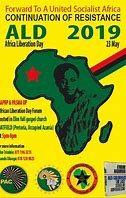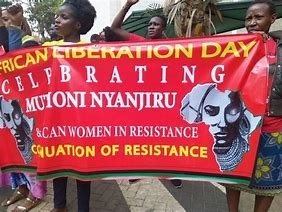African Liberation Day (ALD) is an annual celebration held on May 25th, marking a significant occasion within the Pan African Movement. This commemoration, recognized in countries such as Ghana, Kenya, Tanzania, the United Kingdom, the United States, and others, reflects on the progress made towards freedom and liberation from colonial rule across Africa.
Activities for African Liberation Day include formal gatherings featuring panel discussions, street marches, speeches from political and social leaders, specialized university lectures, and rallies showcasing cultural performances, poetry, and speakers. In the United States, symposiums are a common form of observance, providing a platform for discussion on pertinent political and social issues concerning African communities.
Despite its widespread recognition by various African communities worldwide, African Liberation Day is not officially recognized as a federal holiday in several countries, including Australia, Canada, the United Kingdom, and the United States. However, May 25th is celebrated as a public holiday in several African countries, including Ghana.
African politicians and political activists from a number of African nations gathered in Accra, Ghana on April 15, 1958, for the inaugural Conference of Independent African States, which gave rise to African Freedom Day, later renamed African Liberation Day. The inaugural Pan-African summit on the continent was attended by government leaders from eight independent African countries. The day served as an annual commemoration of the liberation movement’s progress and a symbol of the determination of Africa’s peoples to free themselves from foreign exploitation and dominance.

The period between 1958 and 1963 saw a major upsurge in the nation/class struggle in Africa and around the world. During this time, 17 African nations gained independence, and 1960 was proclaimed the “Year of Africa.” On May 25, 1963, 32 African leaders convened for a summit with the goal of founding the Organisation of African Unity (OAU). They changed the name of Africa Freedom Day to “African Liberation Day” and established its celebration on May 25. This day, which also marks the OAU’s foundation, is additionally known as “Africa Day.”
The celebration of African Liberation Day has been crucial in raising political awareness among African populations across the globe. It has served as a medium for the dissemination of knowledge about the liberation and development movements throughout the continent.
Themes of African Liberation Day
There are a number of major themes that are strongly connected to the goals and struggles that the continent is currently confronting on African Liberation Day. These include:
1. Unity and Solidarity: The idea of unity among African states and peoples is fundamental to African Liberation Day. It highlights how crucial unity is for overcoming common obstacles and achieving shared objectives. Today, regional blocs like the African Union, which support collaboration, integration, and collective efforts for the good of all Africans, serve as a physical manifestation of this togetherness.
2. Opposition to Colonialism and Imperialism: African Liberation Day serves as a reminder of the continent’s traumatic and protracted history of colonial oppression and imperial rule. Its celebration of the bravery and tenacity of people who stood up to foreign oppression also highlights Africa’s determination to defend against neocolonialism and outside meddling in its internal affairs.
3. Socio-Economic Empowerment: Liberation includes the pursuit of social and economic fairness for all Africans, as well as political independence. African Liberation Day advocates for policies that support inclusive growth, sustainable development, and the equitable distribution of resources, while drawing attention to the continent’s enduring issues with poverty, inequality, and underdevelopment.
4. Cultural Revitalization and Identity: A key component of the liberation fight is embracing and honouring Africa’s rich cultural legacy. African peoples can challenge the legacy of cultural imperialism and strengthen their feeling of pride and identity by celebrating African Liberation Day and reinforcing the significance of indigenous knowledge, languages, arts, and customs.

Many organizations use the shape or contour of an African map as a symbol to represent the day. Widely utilized on the day, Pan-African colors include two sets of three colors: the red, black, and green colors chosen by the Universal Negro Improvement Association and African Communities League (UNIA-ACL), and the green, gold, and red colors used in the Ghanaian flag.
However, there is still a long way to go until full liberation and development. Africa continues to face a number of significant challenges, such as poverty, violence, climate change, and the lingering effects of past injustices. True freedom necessitates persistent effort, forward-thinking leadership, and the active participation of all societal groups.
This African Liberation Day, let us reaffirm our dedication to the principles of equality, justice, and freedom. Let us pay tribute to the sacrifices made by those who came before us and be inspired by their tenacity and resolve. Let’s work together to create a future where peace, prosperity, and unity are experienced by Africa and its people.
In addition to honoring the past, African Liberation Day is a call to action for the future and a celebration of the present. It serves as a reminder of the resilience of the African people and their unwavering will to determine their own destiny. As we consider the significance of this day, let us renew our commitment to working towards the creation of a liberated, prosperous, and united Africa for future generations.
Sources




